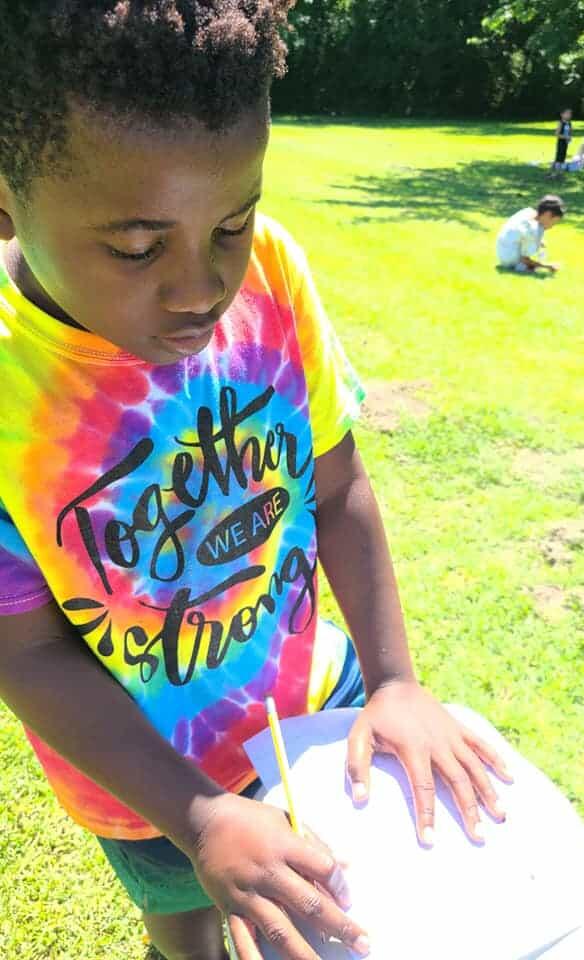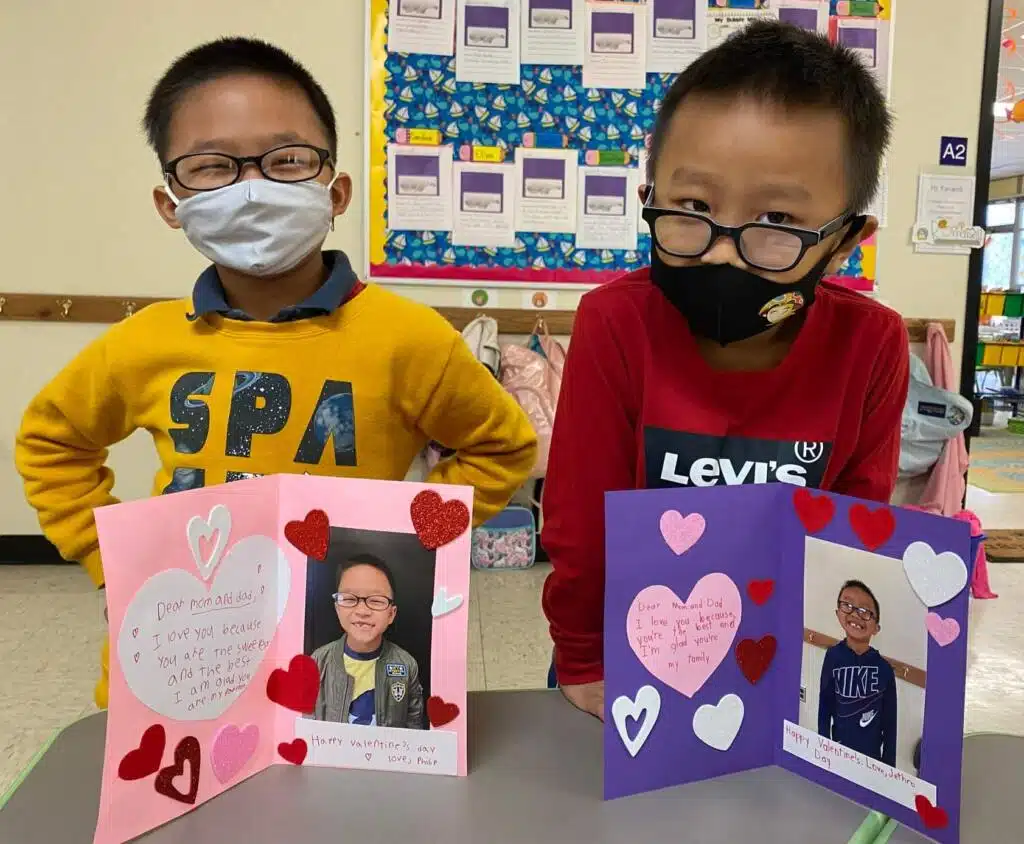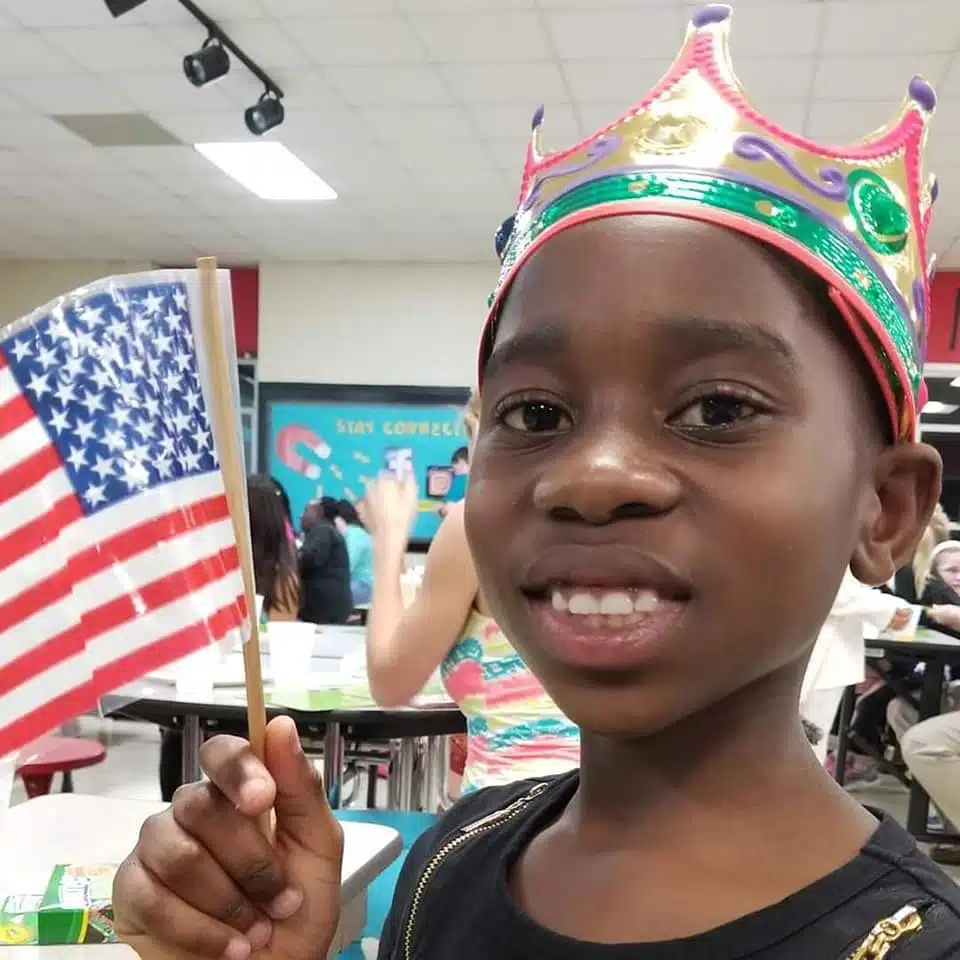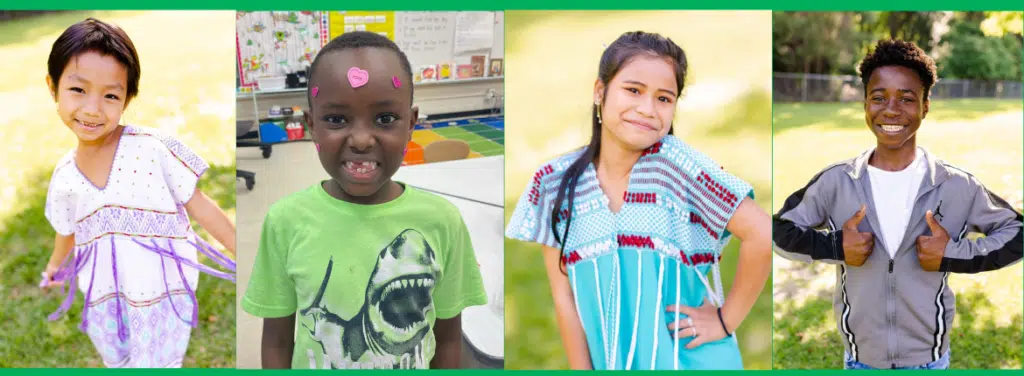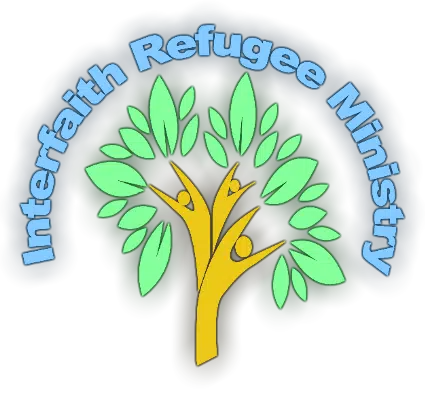
What is the Refugee School Impact program?
The RSI program – like many initiatives in the resettlement sector – is federally funded. But since it relates to education, each state disburses these federal funds to school districts who are working with newcomer youth ages 0 to 18 years. The youth and families involved in the RSI program must be “ORR-eligible,” or qualify for services through the federal Office of Refugee Resettlement. Eligibility is based on their legal immigration status and having arrived in the U.S. within the preceding 5 years.
The overarching objective of the RSI program is to help students and parents from newly arrived families adapt to schools in the U.S. and take advantage of educational opportunities. The program works simultaneously on three levels:
- Strengthening students’ grasp of English and academic performance through intensive tutoring
- Helping parents understand, be present, and be involved in their children’s schools
- Expanding the capacity of schools and school personnel to support newcomer students and families as they adapt to living in a new cultural context.
While newcomer families are initially welcomed by resettlement agencies and community sponsors, the RSI program represents another essential local partnership. For resettlement staff and local school district staff work together to support the families that they both serve.
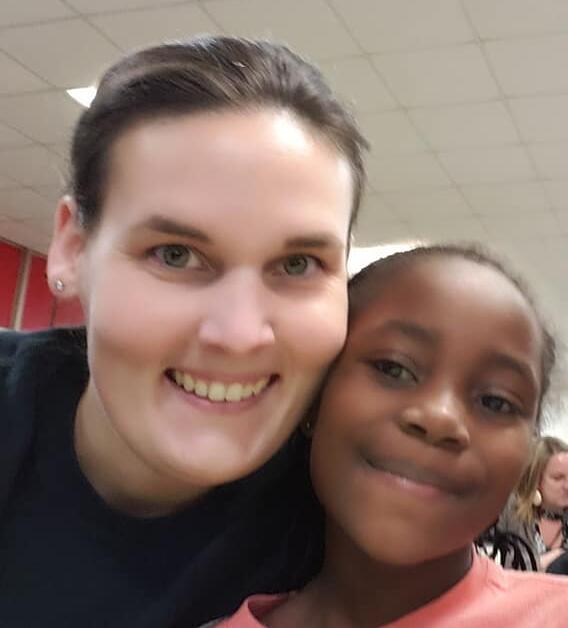
What does the RSI program look like, in operation?
For students, the RSI program provides wraparound academic and personal support. Eligible students receive intensive tutoring in English during the school day. They also participate in a specialized after-school program for English learners, which provides help in doing homework as well as enrichment activities and the chance to connect with other newcomer children. In Craven County Schools, the RSI program hires and trains tutors to work with students during the school day, as they are pulled out of regular classes. The after-school program is staffed by full-time ESL teachers from the school district. Much of the program’s budget covers the cost of hiring tutors and teachers to provide additional instruction and support for these students.
The program also offers some academic support and enrichment to students during the summer. It offers a short summer camp and advises families on other opportunities for times when school is not in session. Children’s circumstances vary, but many learn English quickly and, with proper support, adjust well to their new environment.
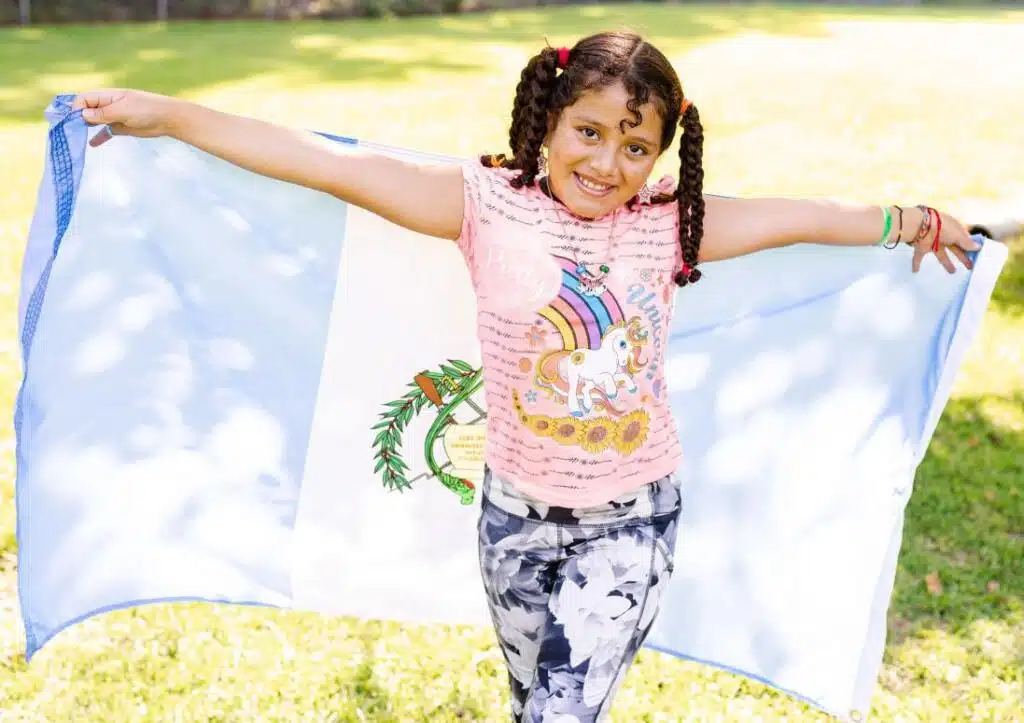
For parents from newcomer families, the RSI program offers individualized support and the chance to learn more about how public schools in the U.S. work. IRM case workers collaborate with the RSI coordinator to register students for school, give families welcome tours and walk through first-day routines. There are group sessions for parents to explain the school calendar, parent-teacher conferences, school lunches, report cards, field trips, what to do if a child is sick, and so on. The partnership with the resettlement agency often makes it easier for the RSI program to find and hire interpreters when working with parents who do not speak English. RSI staff also make a point of educating new parents about other resources in the community, including summer programs for children, and family and adult programs offered by the county and local community college.
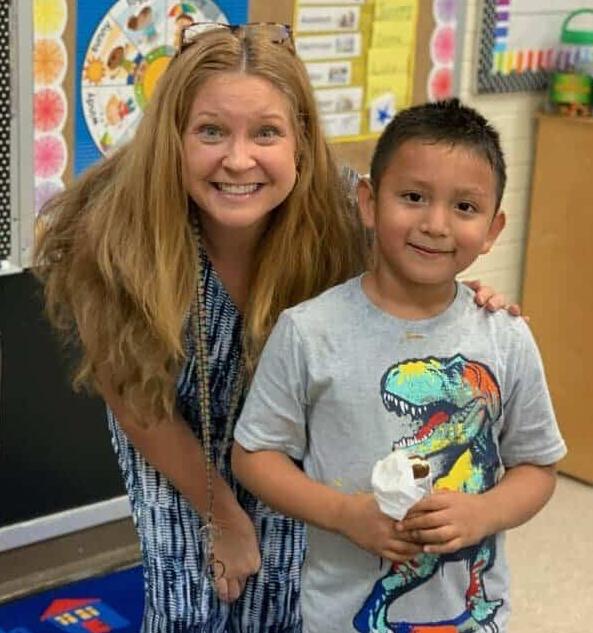
For teachers who have English learners (ELs) assigned to their classes, the RSI program also offers support. As soon as the RSI coordinator knows that new ELs are coming, she notifies the teacher(s) who will be working with them. No one likes to be surprised, especially while the school year is underway. Advance notification enables teachers to think about how to prepare for and welcome new students with limited English in their classes. The RSI program conducts an initial screening of each new student’s skills in English and shares information with teachers.
They also provide “newcomer boxes” to teachers of incoming ELs. These contain flash cards, pictorial communication cards, fidget items, age-appropriate independent activities that new learners can be given, during early weeks while they are learning classroom and school routines. A similar box of school supplies and activities is sent home with each child, to enable students and parents to connect as they process each day’s experiences at school. The RSI coordinator does regular check-ins with teachers about each student in the program.
Cognizant of how many aspects of American school culture may be unfamiliar to newcomer families, the RSI program also works to fill in other gaps. As coordinator Kathleen Brinson explained,
We help with getting forms for field trips signed by parents, and we can cover the costs of these trips as needed. When newcomer kids are at school or on a field trip, we send photos of them to their parents, so they can know they are safe and doing well. If students have experienced a lot of trauma, we connect them with the school counselor to have one-on-one time. Many classes have birthday celebrations where parents bring cupcakes and other treats. We’ll help with school birthday celebrations to make sure new students aren’t left out.
We also get support from a local sorority of current and retired teachers. They put together projects for our students, like valentines’ kits. They give the students books, and some of them come to school and read to the kids. This helps both teachers and kids. Christ Episcopal Church provides bookbags and supplies each year.
In these and other ways, the RSI program works to ensure a soft landing and a relatively easy transition to a new language and cultural context for students and families, as well as support for school personnel who work with them.
What challenges does the Refugee School Impact program face?
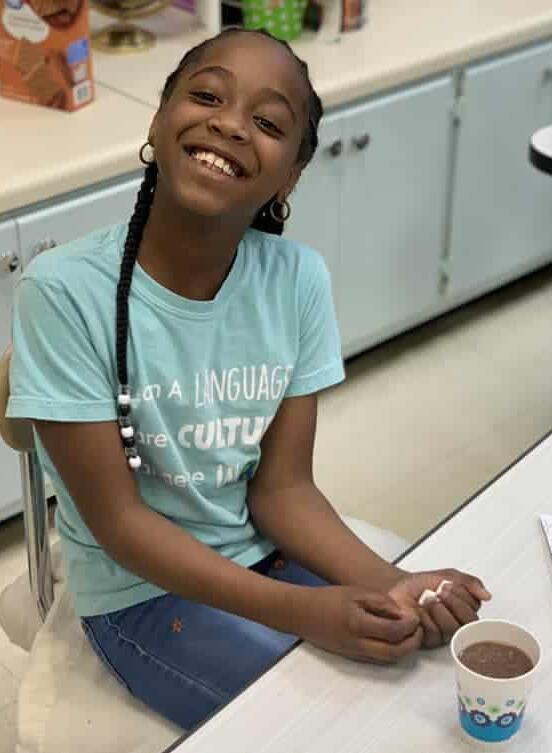
“We’ve started using Uber,” Kathleen Brinson noted, “or sometimes a case manager from IRM can help out.” In a small town with limited public transportation, it takes creativity and collaboration to solve such problems.
Linguistic and cultural differences can also be a challenge, especially when refugees from new areas of the world are resettled in New Bern. Given the historic presence of Montagnards and Karen refugee communities in eastern North Carolina, IRM and its community partners have well-established networks of interpreters for these languages. But when refugees from another context resettle in New Bern, such as the Rohingya families who arrived in 2023, both IRM and the RSI program identify new interpreters, and work to understand the expectations that these new neighbors bring with them. Kathleen Brinson noted that cultural assumptions about the value of education sometimes bump up against American notions:
Families have a lot of respect for teachers, and very high expectations for their children, and how they will do in school. I have learned, over the years, that in some countries, education is not free, or only free for one child, or until they reach 6th grade. In many countries, it is normal for students to start working. We’ve had to learn that it’s ok for 17-year-olds to work or to participate in other available educational options instead of traditional high school. And we have to remember that parents, no matter where they’re from, are trying to do what’s best for their children.
For young adults who work to support their family’s income, and adults who need to learn English or want to earn a G.E.D. or further training for employment, there are opportunities offered by other local organizations. These include the county’s family literacy program (which provides transportation and childcare while adults are in classes), and ESL classes at Interfaith Refugee Ministry and the local community college. RSI program staff make a point of talking with each family to help them understand their options.
This is not easy work. What keeps the RSI staff, tutors and teachers going?
Kathleen Brinson served for many years as a tutor and teacher, before becoming RSI program coordinator. She remembers well how it felt to be a classroom teacher, expected – with no advance notice — to integrate a new student with no English while keeping the rest of her class going. For this reason, she and her fellow ESL teachers work hard to give classroom teachers as much prior notice, time to prepare, and support throughout the process as they can.
The team of ESL teachers and daytime tutors meet regularly to share their observations and plan ways to address individual students’ needs. Brinson and her colleagues also recognize the valuable roles played by the school district (in providing program space and transportation for students), resettlement staff, and other local organizations. It takes efforts on many fronts to help new families feel at home.
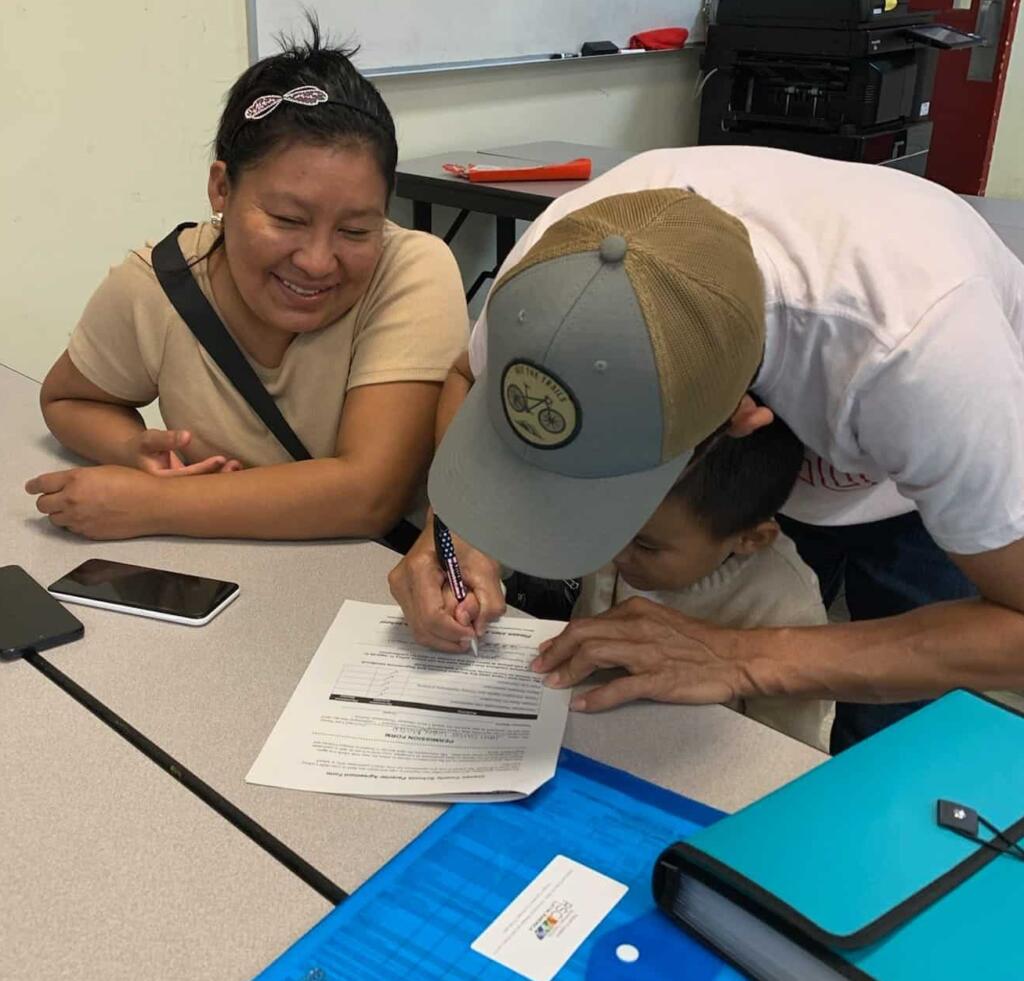
With time and patience, change does happen. Children and adults learn English. Parents learn new routines and get jobs. New families become settled neighbors, with connections to others. Most eventually become U.S. citizens. And with time, Brinson and her colleagues also witness the fruits of their collaboration:
Many of these kids graduate high school, attend college, have good jobs, serve their new country in the military, and open restaurants or other small businesses. Sometimes, a former student [from the RSI program] comes back, and they ask us about enrolling a child in kindergarten. They know we are here and that we will help them.
One previous RSI student came to the U.S. from Colombia when he was 16 years old. He knew some English, but he kept working hard and he learned English quickly. He went to college and received a degree in business. He is now in China teaching English! He texts me once a week or so, just to tell me how he and his students are doing.
It takes a village to raise a child. And it takes many people working on many fronts to truly welcome refugee families, and to support them as they and their children become self-sufficient.
Interfaith Refugee Ministry has been at the center of these efforts in eastern North Carolina for more than 30 years, and their history reveals again and again how important partnerships are: with community sponsor groups, local schools, adult education programs, landlords, and employers.
The smiles on these children’s faces and the light in their eyes remind us of the promise and potential they bring to the communities where they and their families come to live. They remind us that the work of building partnerships and strengthening community ties — in order to offer our newest neighbors the welcome and the opportunities they deserve — is worthy indeed.
***
To learn more about opportunities to engage in the work of welcome through EMM’s network, take the Ways to Welcome assessment.




